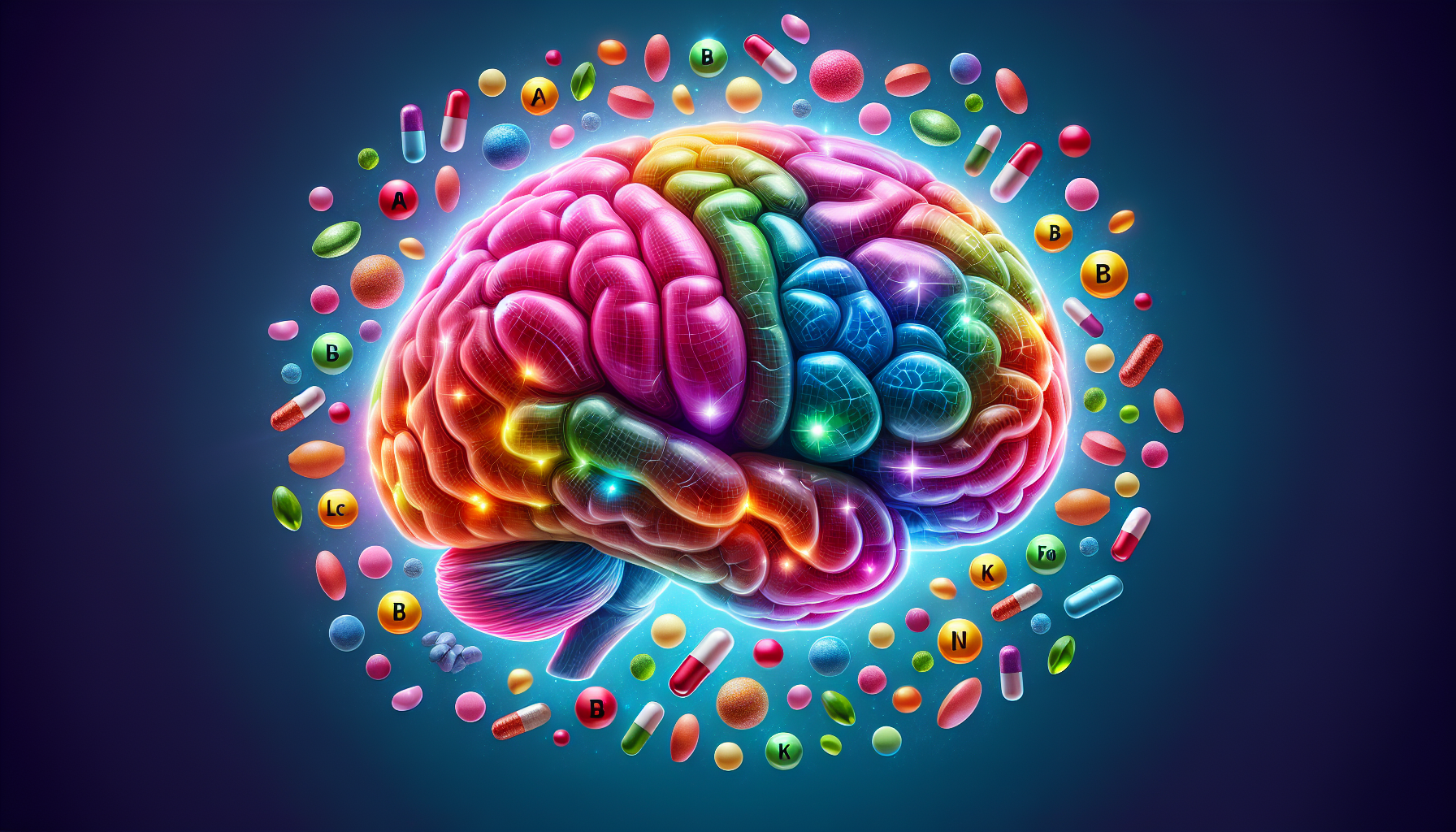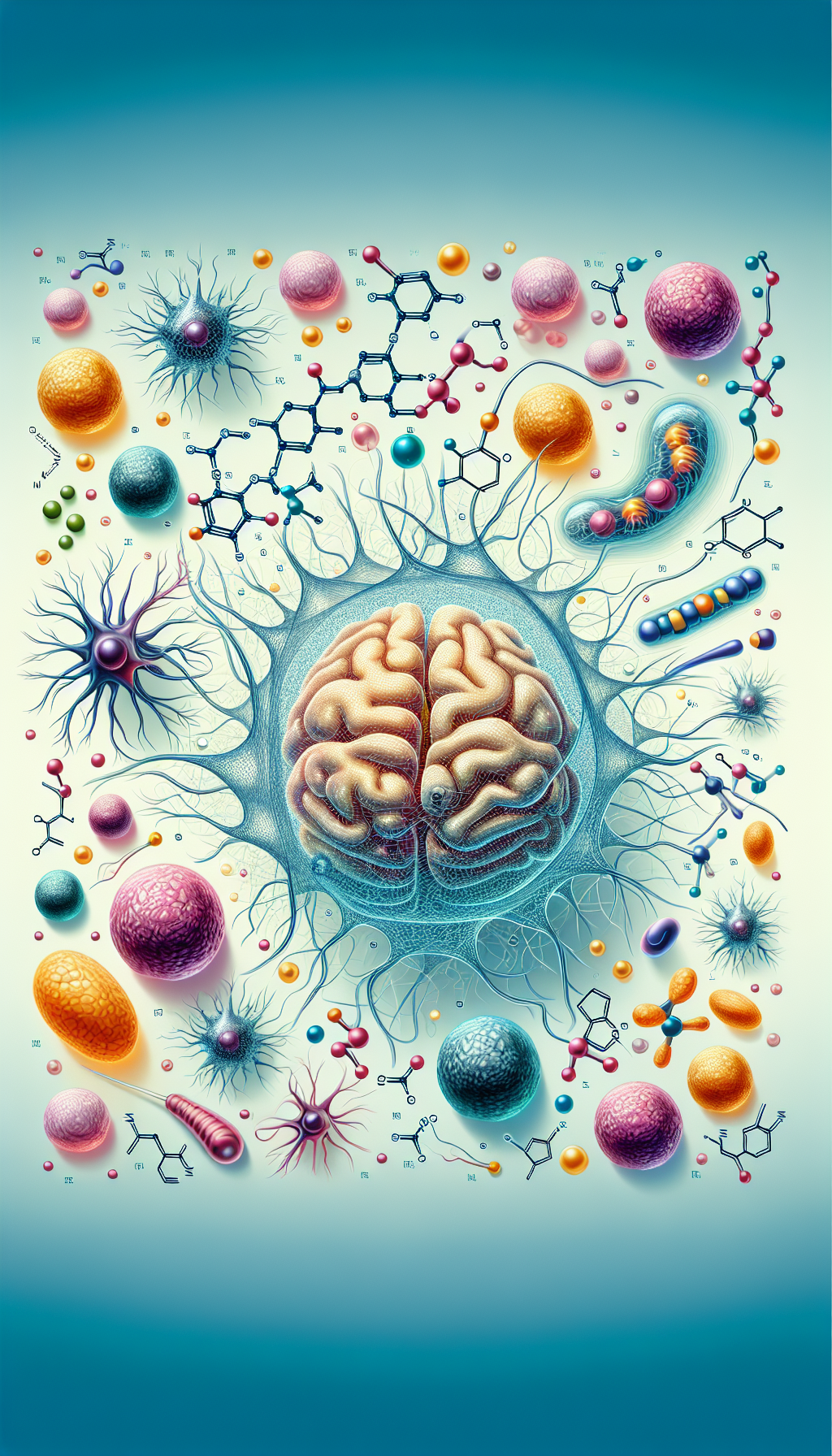The intricate relationship between dietary nutrients and cognitive function has been a subject of increasing interest in the field of neuroscience and nutrition. Cognitive abilities, which encompass memory, attention, language, and problem-solving skills, are crucial for daily functioning and quality of life. Emerging evidence suggests that vitamins, as part of a well-rounded diet, play a pivotal role in maintaining and enhancing brain health and cognitive processes.
The Role of B Vitamins in Cognitive Function
B vitamins, including B6, B9 (folate), and B12, are vital for brain function. They aid in the production of neurotransmitters, the chemicals responsible for signaling between brain cells. A deficiency in these vitamins has been linked to cognitive decline and neurological abnormalities.
B6 (Pyridoxine)
Vitamin B6 is essential for the synthesis of neurotransmitters such as serotonin and dopamine, which are linked to mood regulation and cognitive processes. According to a study published in the Journal of Nutrition, higher B6 levels are associated with better memory performance in older adults.
B9 (Folate)
Folate is crucial for brain function through its role in DNA synthesis and repair, as well as methylation processes critical for cognitive function. Research indicates that folate deficiency can lead to neurological disorders and an increased risk of cognitive decline. A detailed review in the American Journal of Clinical Nutrition explores the impact of folate on cognitive function.
B12 (Cobalamin)
Vitamin B12 is important for maintaining the health of nerve cells and supporting the production of red blood cells, which carry oxygen to the brain. A lack of B12 can lead to memory problems and cognitive impairments. A study published in the journal Neurology highlights the relationship between B12 levels and cognitive performance.
For more information on the importance of vitamins for brain health, explore Avix Health’s extensive resources on Brain Health.
The Antioxidant Effects of Vitamins C and E
Vitamins C and E are powerful antioxidants that protect the brain against oxidative stress, a factor implicated in age-related cognitive decline and neurodegenerative diseases like Alzheimer’s.
Vitamin C (Ascorbic Acid)
Vitamin C not only serves as an antioxidant but is also involved in the synthesis of neurotransmitters. Research presented in the journal Free Radical Biology and Medicine discusses the protective role of vitamin C in cognitive health.
Vitamin E (Tocopherol)
Vitamin E is a fat-soluble antioxidant that is particularly important in protecting the brain’s fatty tissue from oxidative damage. A study in the Archives of Neurology found that high levels of vitamin E can help prevent cognitive decline.
The Cognitive Benefits of Vitamin D
Vitamin D, often known as the "sunshine vitamin," is recognized for its role in bone health, but its impact on the brain is equally significant. It facilitates nerve growth, modulates immune function, and has been shown to play a part in cognitive health. An article in the journal Molecular Psychiatry explores the potential correlation between vitamin D levels and the risk of developing dementia.
Omega-3 Fatty Acids and Brain Health
While not a vitamin, omega-3 fatty acids are essential nutrients that cannot be synthesized by the body and must be obtained through diet or supplements. These fatty acids are components of cell membranes in the brain and are integral to cell signaling and brain structure. Explore the Impact of Omega-3 Supplements on Heart Health, which also touches on their benefits for cognitive function.
Enhancing Cognitive Health Through Diet and Supplementation
Incorporating a diet rich in vitamins and other essential nutrients is key to supporting brain health. However, certain populations, such as the elderly, vegans, or those with specific medical conditions, may require supplements to meet their nutritional needs. For an in-depth look at addressing these needs, consider reading about Navigating Nutrient Deficiencies in Vegan Diets and Evaluating the Need for Supplements in Childhood and Adolescence.
To ensure the optimal intake of these cognitive-supporting nutrients, a balanced approach that includes both dietary sources and high-quality supplements may be beneficial. Always consult with a healthcare provider before starting any new supplement regimen.
Conclusion
The connection between vitamins and brain health is a dynamic area of research that holds promise for the prevention and management of cognitive decline. By understanding the roles of various vitamins and ensuring their adequate intake through diet and supplementation, individuals can support their cognitive function and overall brain health.
For further guidance and information on the appropriate use of vitamins and supplements, visit Medication & Supplements at Avix Health.



